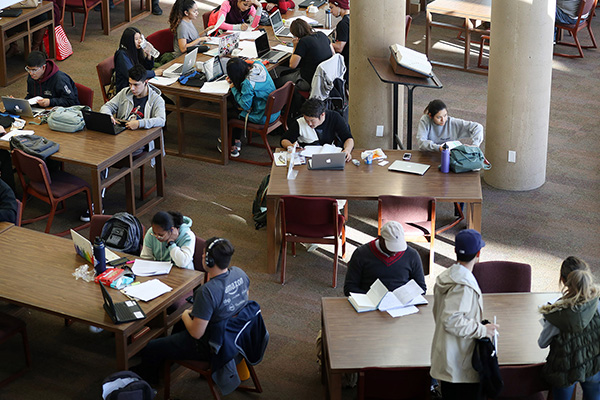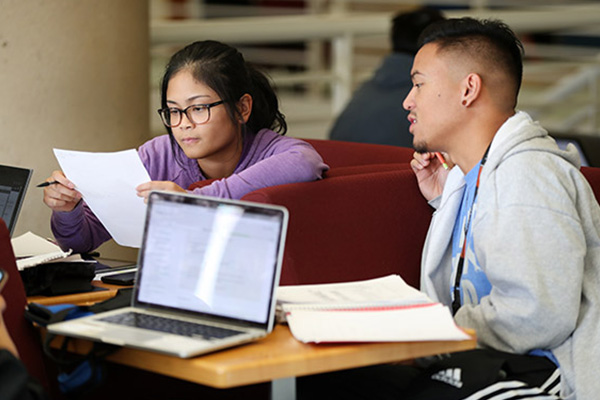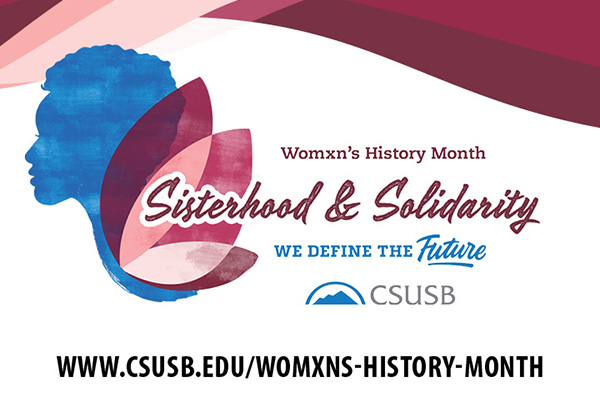A Moment with President Tomás Morales – March 2024
I am honored to announce that, this February, the Inland Empire’s Black Culture Foundation recognized Cal State San Bernardino with the Jim King Founders award for the university’s role as an anchor institution here in the IE and Coachella Valley. I accepted this meaningful accolade in person at the annual Black Rose Awards ceremony in Riverside. As I told everyone in attendance, “There is so much potential here in Inland Southern California. This award today says, you see what we are doing and you want to partner with us to grow tomorrow.”
It is through partnerships and engagement with organizations and entities in our community that CSUSB can continue both to support our students and our region. John Donne’s poem, stating that “no man is an island,” remains truer than ever in 2024.
Additionally this month, I wanted to share with you another student success-directed program which is flourishing here at CSUSB. Since 2015, our campus has participated in a groundbreaking cost-saving program for students to help lower the amount of what they pay for their textbooks and course materials: Affordable Learning Solutions. The program is growing by approximately 20% each year.
Created by the California State University system, ALS “encourages faculty to discover, adopt, and assign low- or no-cost, quality education materials for their courses,” as program director and associate professor of ancient history Dr. Cary Barber shared with his colleagues prior to this past fall semester. From 2015 to the 2022-23 academic year, total savings on course materials have increased from $35,000 to $3.1 million.
 One of the biggest barriers to student success is access to course materials. The inability to purchase textbooks may result in students dropping a full letter grade. And while approximately 60% of CSUSB students pay no tuition, that waiver does not include the cost of their course materials. On top of this, textbook costs have increased two- or three-fold (or more) since the 1980s. It is only because of efforts and initiatives across the nation like ALS that textbook publishers have begun to take a step back to look at how course materials are delivered and at what cost.
One of the biggest barriers to student success is access to course materials. The inability to purchase textbooks may result in students dropping a full letter grade. And while approximately 60% of CSUSB students pay no tuition, that waiver does not include the cost of their course materials. On top of this, textbook costs have increased two- or three-fold (or more) since the 1980s. It is only because of efforts and initiatives across the nation like ALS that textbook publishers have begun to take a step back to look at how course materials are delivered and at what cost.
The program offers various ways to implement the savings. Starting with what were originally called open educational resources—which were faculty created, internationally shared and open access—zero-cost course materials or ZCCM have expanded to include a library component. In this latest addition to ALS terminology, the university’s John M. Pfau Library purchases textbook licenses which allow faculty to offer these class materials to students for free.
Another ALS component is called Inclusive Access. Many course materials have software associated with them, which can add significantly to their cost. When faculty adopt IA for their classrooms, a digital or e-version of the materials will include this additional software for a cost reduction of 50-70% for the students.
What does this mean in actual dollars and cents? For example, some accounting classes have seen course material costs drop from over $1,000 to $200. In one astronomy class, the textbook costing $250 was lowered to $0 through ZCCM. A more typical example, however, is a reduction from $120 to $50 in a single class.
 At CSUSB’s 2015 initial roll-out, 6 courses were impacted. That has increased to 681 courses, totaling 25,800 enrolled students. The average class utilizing ALS is saving $400-$600 for their students.
At CSUSB’s 2015 initial roll-out, 6 courses were impacted. That has increased to 681 courses, totaling 25,800 enrolled students. The average class utilizing ALS is saving $400-$600 for their students.
At CSUSB, the program is almost exclusively run by teaching faculty. Requirements for CSUSB faculty participation include demonstrating that their efforts will save 30% or more over past course material costs. Faculty must also participate in an annual April showcase where they make a 4- to 5-minute presentation explaining to colleagues how they made those savings. For example, because of the ALS grant, faculty receive $900 for adopting ZCCM and $100 for opting into an IA program. The incentive is payable as professional development funding and disbursed at the end of summer session (upon completion of all requirements).
In addition, the university utilizes an e-portfolio site, MERLOT.org, which is meant to serve as a nationwide course materials database. It enables faculty to share what they have done in their courses so that faculty teaching similar courses at not only CSUSB but also across the country can make use of these same materials.
Funding for the program is currently provided by the CSU, the CSUSB Provost’s Office along with the office of FCE Instructional Design and Academic Technologies.
 For further information about Affordable Learning Solutions at CSUSB, please visit the ‘ALS: Introduction’ site. For further information about ALS as a CSU system-wide initiative, please visit: https://als.calstate.edu/.
For further information about Affordable Learning Solutions at CSUSB, please visit the ‘ALS: Introduction’ site. For further information about ALS as a CSU system-wide initiative, please visit: https://als.calstate.edu/.
I wish you a wonderful Womxn’s History Month!
Until next time—
Tomás D. Morales
President